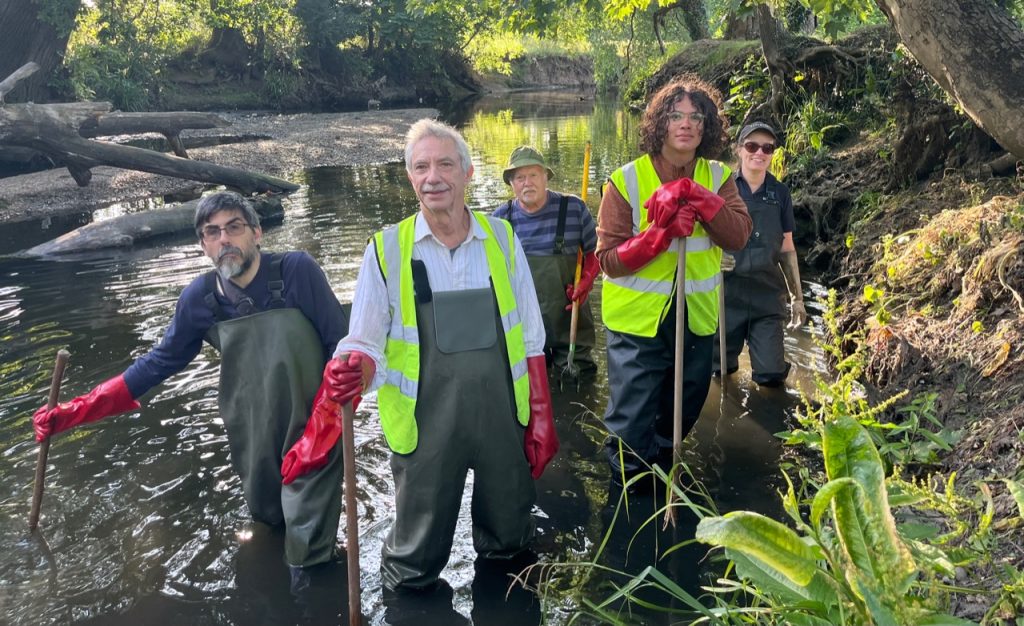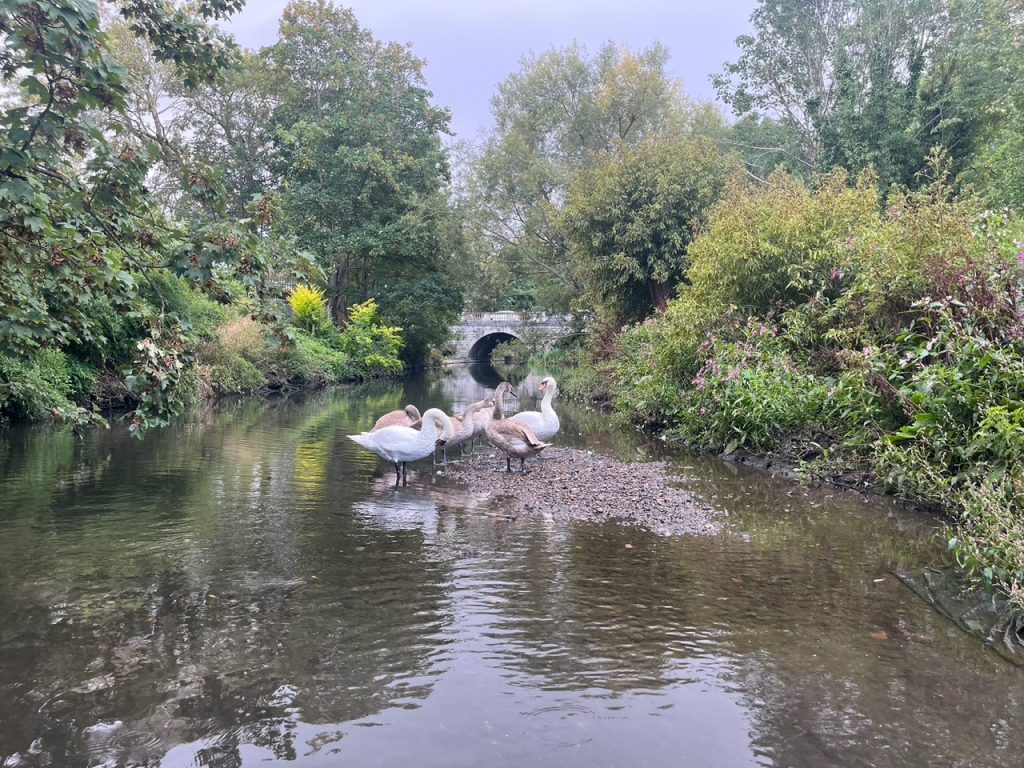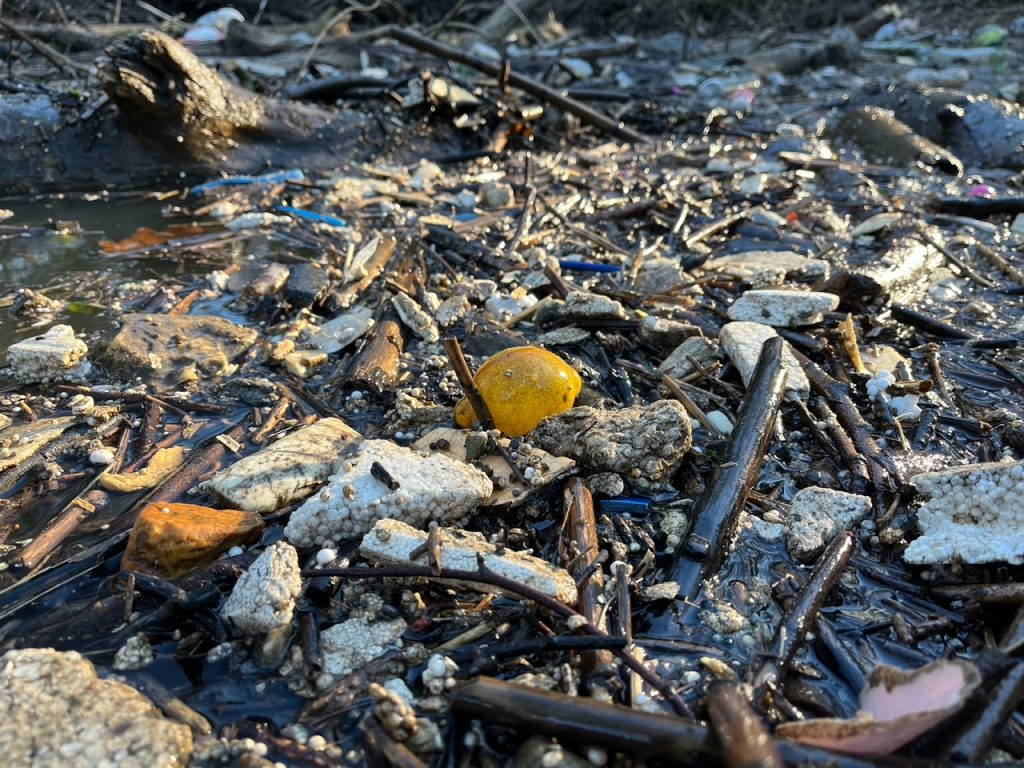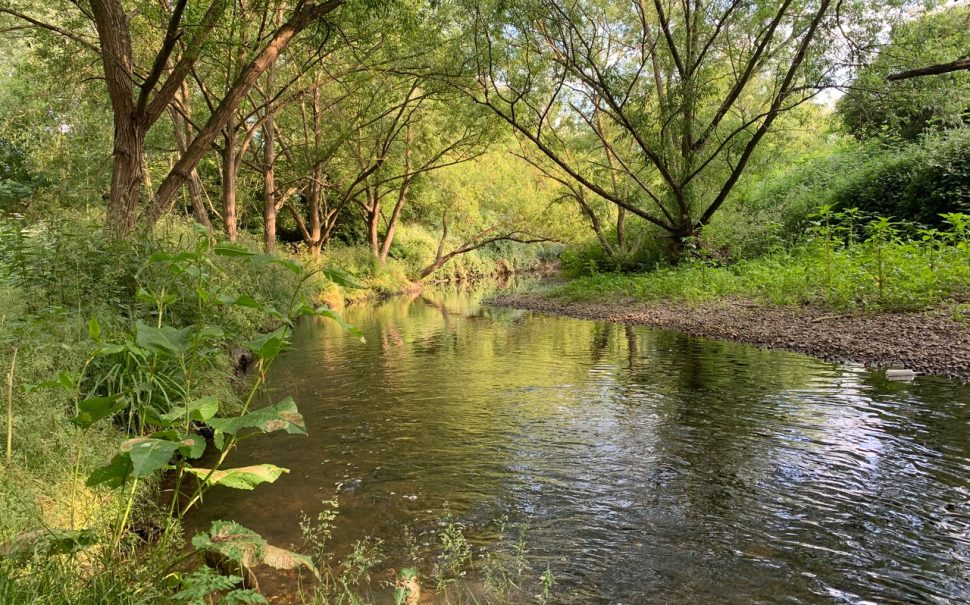A group of volunteers have been meeting regularly to clean up the River Brent amid growing concerns over the water’s health and quality.
The Clean Up the River Brent (CURB) initiative was sparked by Ben Morris, in 2021 after he was out walking his dog in Pitshanger Park in Ealing, where he spotted the polluted and littered state of the local river.
He described the previous state of the River Brent as ‘a stinking, grey mess’, filled with plastic bottles, footballs, cans, styrofoam and car tyres, which prompted him to contact the Environment Agency and campaign for a mass community clean-up.
Morris was trained by Thames21 and set up clean-ups around the River Brent, utilising the Freedom of Information Act to find out the main causes of pollution to the UK’s rivers, which allowed him to develop CURB.
He told the Londoners that in October 2021, the group recovered ‘over 500 car tyres and 100 tonnes of fly-tipped and discarded junk from the river and its banks’.

The issue rapidly reached those living around Brent, and as the number of volunteers increased, CURB began its work in collaboration with LAGER Can, a litter picking group from Ealing, to spread the message.
Morris said: “We could all see that the state of Brent was not right, it was just obvious.
“Nobody thinks a river should be polluted.”
CURB now tackle invasive plant species, seeking to replace them with attractive, native plants, while building relationships with like-minded environmental groups around London to raise awareness and act.
Morris said: “We are now a part of an informal but very active community, with lots of events and meetings, and all sharing a mission to Clean Up the River Brent.”

Reflecting on CURB’s successes so far, Morris said building a community among other river groups has been a significant achievement.
“We are in touch with like-minded people all over London and the Thames catchment, and their friendship is heartening,” he said.
Likewise, he acknowledged CURB’s mission has its challenging moments, stating ‘there are not going to be quick and easy fixes to our problems [the extent of pollution in the river],’ but that it is essential to persevere through them.
“Invariably, at such a moment, something positive will happen – often the sudden peep-peep and flashing blue and orange fly-by of a kingfisher – and we all know it’s all worthwhile,” he said.
Within this, London’s water supplier, Thames Water, has a vital role to play in maintaining the health of the capital’s rivers, along with other residents of the area acknowledging that the river is everyone’s responsibility.
Morris lists the most common issues that cause pollution in the River Brent to be fly-tipping, domestic sewage being plumbed into smaller rivers, road gulley abuse (dumping oil, paint, etc. into the streams), and road run off (tyre rubber, oil and other materials wash into the streams).

In moving the mission forward, Morris said ‘attention is growing, but we need to raise the issue further’.
He added urban planning is another issue which can be fixed by ensuring more rainwater is put into the ground rather than ‘cascading into rivers, and washing all before it in a filthy torrent’.
Morris said: “There are too many hard ground surfaces in our towns, and not enough trees.
“We can green up, improve our land environment, and our rivers too – it’s a no-brainer.”
He said speaking to local MPs directly and connecting with bigger organisations like Thames21, River Action, The Rivers Trust or the UK Environmental Agency are ways people can try and play their part in supporting sustainable projects.
“Be patient, be calm, be clear, but be determined. Don’t be a voice crying in the wilderness,” Morris said.
“Stay local, take direct action, and share your findings.”
CURB have a short film titled The River Remembers releasing at the Ealing Film Festival at 6pm on Friday, 3 October 2025, set to showcase the work of the group to date, as well as call for volunteers to act.
You can follow CURB’s efforts by logging into their Brent Monitoring Network for real-time water quality updates.
Thames Water responded to the Londoners, stating it is aware of the growing demand for river maintenance in London’s communities.
A Thames Water spokesperson said: “We are targeting a record of £9.5 billion across our wastewater assets, which focuses on safeguarding the environment and improving river health.
“We recently announced a £1.8billion investment to improve river health across London and the newly completed Tideway Tunnel will reduce the volume of discharges […] in a typical year by 95%.”
The company has further reinforced it is ‘committed to seeing waterways thrive’, and has pointed residents towards its real-time data map for storm discharge distribution.
Featured image credit: Ben Morris via Clean Up the River Brent





Join the discussion